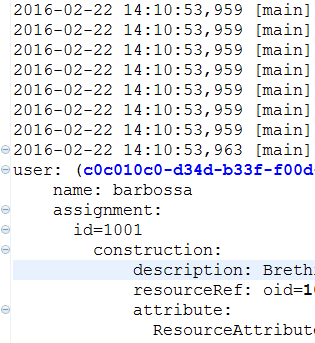Life of a midPoint developer is a colorful one. There are enjoyable periods of building things when you have a luxury of undisturbed raising smaller or larger pieces of code. But sometimes there comes an interrupt: you break something in such a way that you are not able to find what is wrong – for hours or even for days, occasionally. Also regularly, after “feature freeze” points, there arrive periods of intensive and merciless hunting of remaining bugs. Besides this, often a colleague, customer, partner or a friend on the mailing list comes with a problem he or she urgently needs to help with.
The core of midPoint – IdM Model Subsystem – is an extremely powerful and flexible computation engine. It can be configured to implement almost all policies one could imagine. But with such flexibility comes potential (and sometimes very real) complexity: for more advanced configurations it is very easy to make a mistake that, with a bit of bad luck, manifests itself in a quite unexpected way.
[…]







